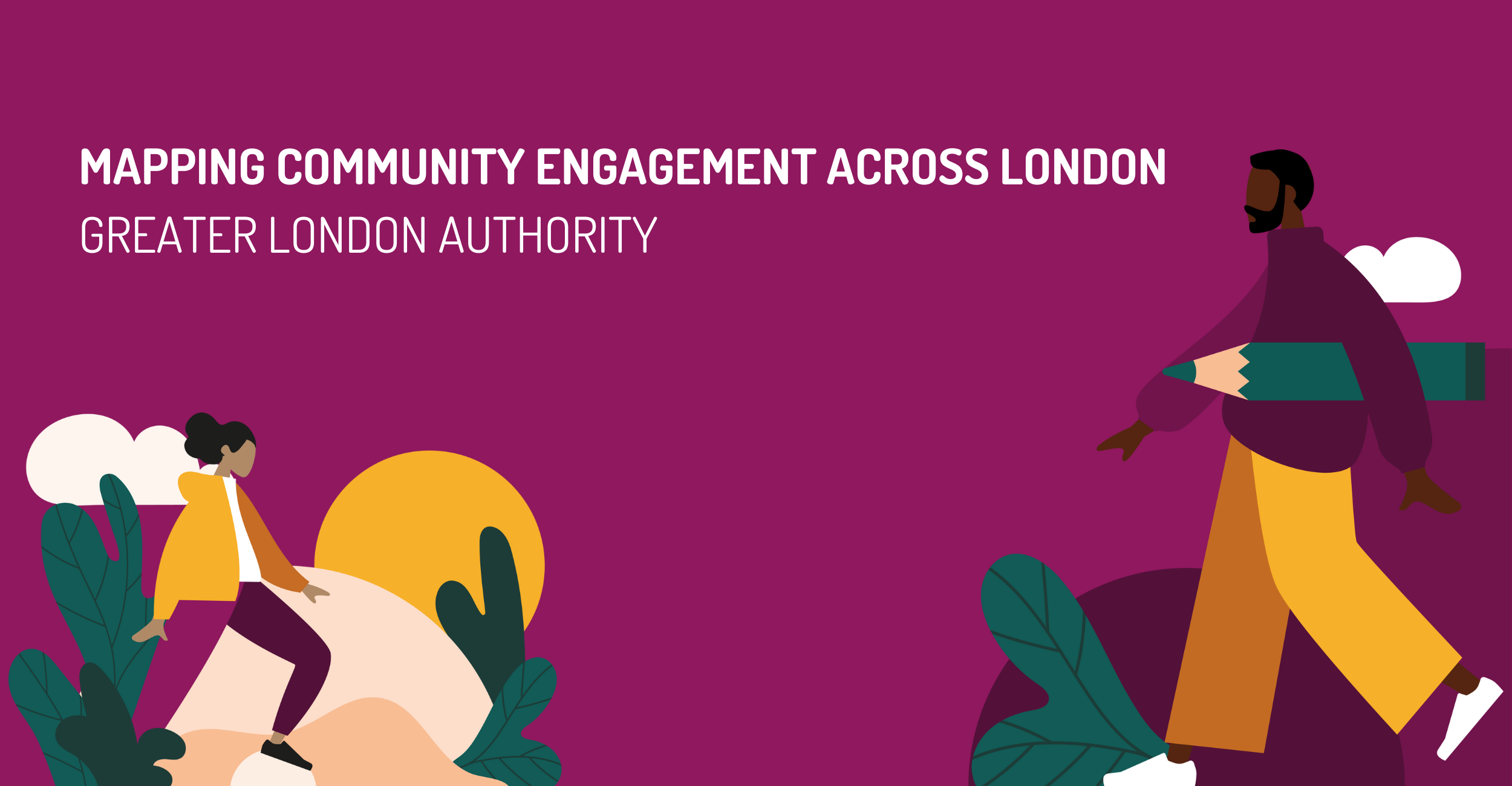Mapping community engagement across London with the GLA
In 2023, The Greater London Authority’s (GLA) Community Engagement team commissioned TSIP to conduct a mapping of community engagement across London. The aim of the research was to explore more collaborative and innovative community engagement methods, as well as co-production methods for practising more shared decision making between community members and policymakers.
Why did we do it:
Top-down approaches in public decision-making are increasingly being challenged, fuelled by the idea that those with lived experience and local knowledge of the issue at hand need to be able to influence the process. Participatory approaches sit at the heart of TSIP’s strategy, putting us in the right place to explore this topic further and develop recommendations to policymakers in collaboration with communities.
How did we do it:
Using a variety of data collection methods to map out the wide range of community engagement practices taking place across London, we engaged widely with different policymakers, funders, community groups and infrastructure organisations who work in community engagement spaces across London and produced 10 case studies to shine light on innovative practice.
What was our impact:
Based on our extensive research and feedback from the community, we produced a set of tools and recommendations for policy makers around best practice for community engagement.
What did we learn:
This project has highlighted the diversity and range of community engagement practice happening across London and the importance of sharing knowledge and encouraging collaborative practice amongst a range of stakeholders.Through the mapping we constructed a set of recommendations for policymakers looking to engage in community engagement:
Go back to basics: Go to where communities are and ask them what they need.
Prioritise a relational approach to community engagement to help rebuild trust within communities.
Improvements are needed in the knowledge-sharing landscape to ensure innovation and best practice is captured and shared.
Community engagement should be everyone's responsibility.
Policymakers should improve accessibility by reducing red tape around funding and having more unrestricted grants, allowing organisations more flexibility and autonomy.
Communities should be remunerated for their engagement.
Policymakers should use a mixed-method approach to engagement to ensure they target a wide range of voices within the community.
Policymakers should be transparent and ensure clear communication.
Building the right environment for effective engagement: 6 factors
interested in BEST PRACTICE AROUND community engagement? Download our shareables
Key Insights
Learn more about the key findings of our research in this easily digestible summary document.Toolkit
Get practical recommendations on how to improve community engagement across the board using our toolkit for effective community engagement.Case Study Pack
Find practical examples of all engagement activities listed in this toolkit in our case study pack.





